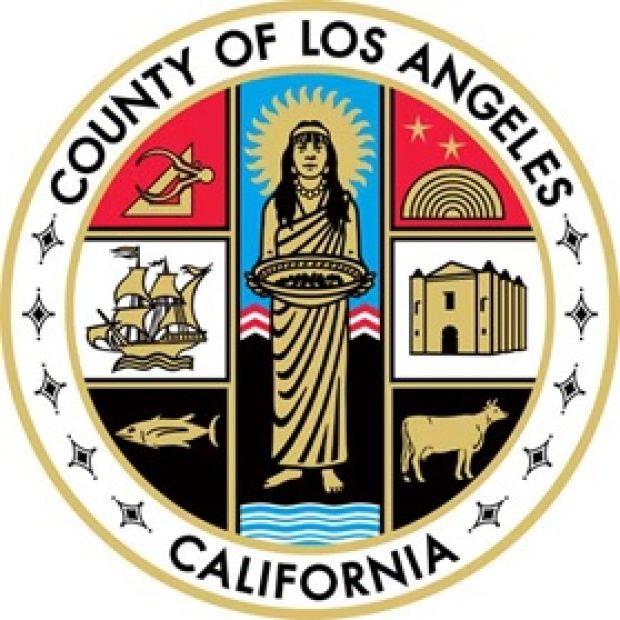The gloves stayed on during the first debate between Los Angeles County Supervisor candidates, except around the topic of campaign finances.
Four candidates vying to replaced current termed-out Third District Supervisor Zev Yaroslavsky met to discuss key issues in front of an audience on the UCLA campus Thursday night.
Former Santa Monica Mayor Bobby Shriver, who’s part of the Kennedy clan, defended his recent decision to donate $300,000 of his own money to his campaign, thereby removing spending limits for the other candidates.
Shriver, whose uncle was former President John F. Kennedy, got into politics at the age of 50 after a dispute with City Hall over the his hedges. Shriver said that his narrative is less well known than more seasoned politicians in the race.
“I want to be able to tell my story in an effective way,” he said.
He further defended the decision to spend big explaining that the money is coming from him, not a third party seeking political favor.
“He certainly hasn’t evened the playing field,” responded former State Senator and Assemblywoman Sheila Kuehl.
Kuehl, a long-time Santa Monica resident, announced her intentions to run for supervisor early last year.
“I have nothing against inherited wealth,” she said. “I just think that the funding of politics should be much more spread out and not just belong to people who can write themselves a check.”
Former Malibu Mayor Pamela Ulich issued a challenge to the other candidates asking them to set aside 10 percent of their campaign chests to be donated to county charities after the election.
Yaroslavsky is on his way out after serving 20 years on the Board of Supervisors. His replacement would represent the 2 million people in the Westside, Bel-Air, Beverly Hills, Brentwood, Pacific Palisades, Universal City and almost the entire San Fernando Valley.
The county Board of Supervisors is one of the most powerful elected bodies in the nation. Los Angeles County — 4,000-square miles, 88 cities, 10 million residents — is more populous than 42 individual states.
The board is in charge of implementing almost all federal, state and county programs, including food stamps and the Affordable Care Act. Its decisions affect public health, social services, welfare, education, law enforcement, jails, emergency response, environmental protection, housing, and other aspects of daily life.
It manages the county’s foster care system, probation system, juvenile halls, animal shelters, senior centers, as well as beaches and the coroner’s office.
The board’s five members also serve as leaders at the Metropolitan Transportation Authority, which runs the mass transit system.
West Hollywood Councilmember John Duran labeled himself a moderate after forum moderator Warren Olney called all four candidates liberal Democrats. Duran made clear that he is pro-business and spoke about making the hard decisions at council meetings despite constant vocal opposition.
“I have to protect the other 37,000 people from these same 50 people because they’re not the voice of the community,” he said. “Most of the community, they’re working hard trying to get by. They want us to make right decisions. Sometimes that means standing up to some of the neighborhood groups who want to sort of rule the roost but to our economic detriment.”
An audience member asked about protecting the Santa Monica Bay from pollution, to which Shriver noted that regulations enacted by Santa Monica have already made great strides in the fight.
“It has taken the beach next to Santa Monica Pier from being the most polluted beach in Southern California to be one of the OK beaches,” he said. “You don’t get sick when you swim there anymore. They still have significant problems with birds but we’ve done a pretty good job of solving it.”
Shriver said that the same changes could be made countywide.
Kuehl said that polluted stormwater is caused by all 88 municipalities in the county but that the consequences are placed on the shoulders of the beach cities.
The Third District encompasses a large swath of the San Fernando Valley, which Kuehl and others said needs better transportation.
“What they really want more than anything, and there’s a consortium of associations and organizations meeting, is a train that goes from the valley to LAX underneath the Sepulveda Pass,” she said. “What a dream. What a vision. And yet, what a possible dream and vision.”
Shriver said that regulations out in the valley are hurting manufacturing jobs.
“What the Valley wants … in addition to transportation funding and good jobs, is respect,” he said. “I think that’s what they’ll get from me because I will go out there every day.”
The candidates touched on other issues, including how to correct mismanagement in the Sheriff’s Department.
The primary election is scheduled for June 3.
This story originally appeared in the Santa Monica Daily Press.

